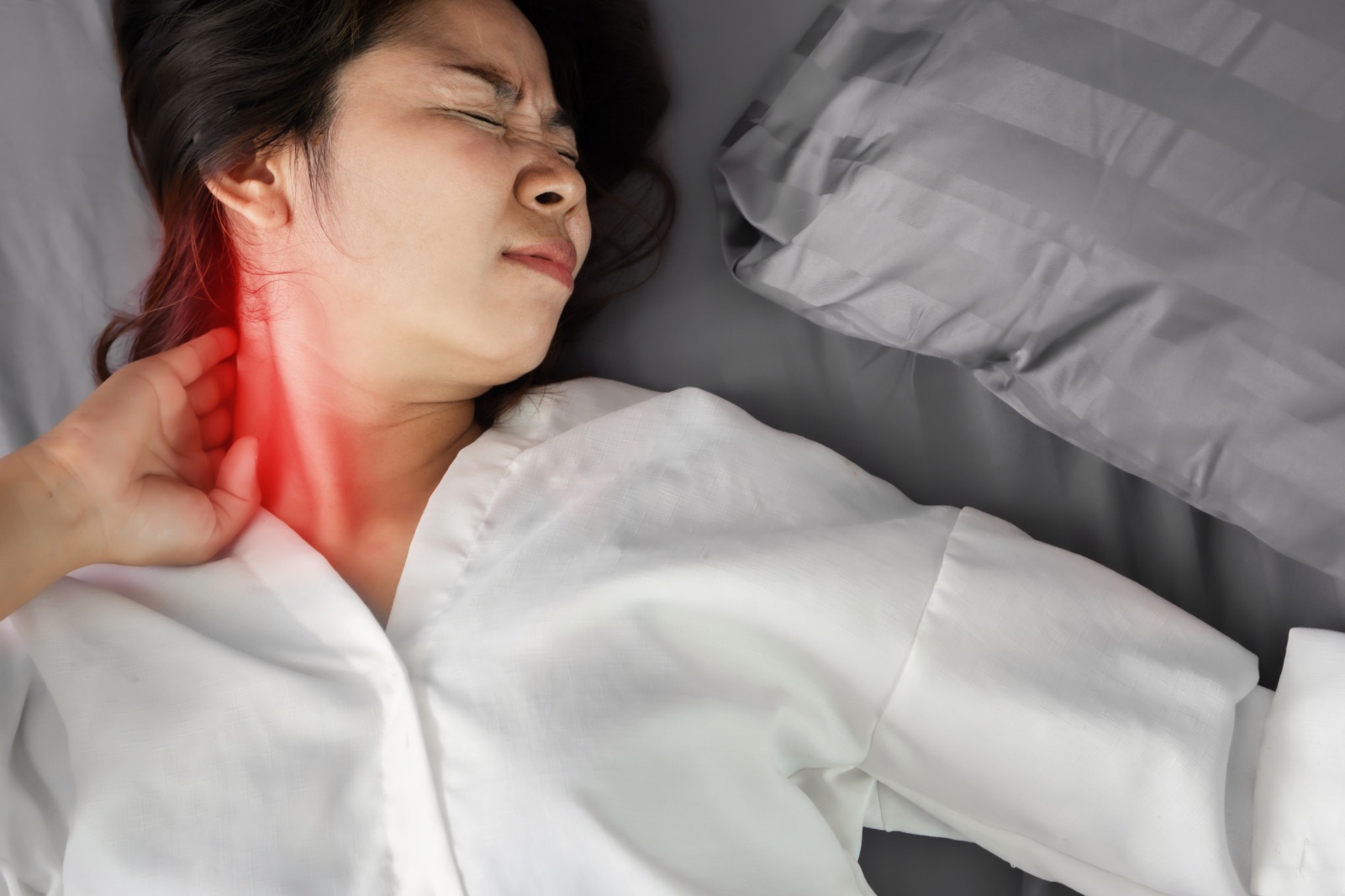How Does Ehlers-Danlos Syndrome Affect Sleep?

Ehlers-Danlos Syndrome (EDS) is a group of connective tissue disorders characterized by hypermobility, skin elasticity, and fragile tissues. While the physical symptoms of EDS are often the focus, the condition also has significant implications for sleep quality and patterns. In this blog, we’ll explore how EDS affects sleep and tips for improving rest for those living with this condition.
Understanding Ehlers-Danlos Syndrome
EDS encompasses several subtypes, with hypermobile EDS being the most common. People with EDS experience a range of symptoms, including joint pain, frequent dislocations, and skin that bruises easily. These physical manifestations can lead to discomfort and pain. According to a 2018 study in the National Library of Medicine, adults with RDS are more likely to have sleep apnea and other sleep disorders compared to the general population.
Sleep Disruptions and EDS
Chronic Pain and Discomfort
One of the most significant factors affecting sleep in individuals with EDS is chronic pain. Joint hypermobility often leads to joint instability and pain, making it challenging to find comfortable sleeping positions. The discomfort can result in frequent awakenings throughout the night. Additionally, pain can make it difficult to fall asleep. This creates a cycle of sleep deprivation and fatigue.
Restless Legs Syndrome (RLS)
Many individuals with EDS also report symptoms consistent with Restless Legs Syndrome. RLS is characterized by an uncontrollable urge to move the legs. The association between EDS and RLS may be related to underlying connective tissue abnormalities affecting the nervous system.
Sleep Apnea
Sleep apnea, a condition where breathing repeatedly stops and starts during sleep, is another concern for those with EDS. The laxity of the connective tissues in the throat can contribute to airway obstruction and cause obstructive sleep apnea (OSA). Symptoms of OSA include loud snoring, choking or gasping during sleep, and excessive daytime sleepiness. Individuals may want to look into CPAP therapy.
Anxiety and Depression
Living with a chronic condition like EDS can contribute to anxiety and depression, both of which significantly impact sleep quality. Anxiety can lead to racing thoughts and an inability to relax. Depression can disrupt sleep patterns, causing hypersomnia (sleeping too much) or insomnia (difficulty sleeping). These mental health challenges can compound the difficulties of managing EDS symptoms.
Strategies for Improving Sleep
Create a Sleep-Friendly Environment
Designing a comfortable sleep environment can help promote better rest. Consider using supportive pillows under your neck, legs, and feet that accommodate joint positions and maintain spinal alignment. There are also specialized adjustable bed frames that can help with this. A cool, dark, and quiet bedroom along with a cooling duvet and sheet set can also facilitate better sleep.
Establish a Sleep Routine
A consistent sleep schedule can regulate your body’s internal clock. Aim to go to bed and wake up at the same time every day, even on weekends. Developing a calming pre-sleep routine—such as reading, meditation, or gentle stretching—can signal to your body that it’s time to wind down.
Manage Pain Effectively
Consulting with healthcare providers to manage chronic pain is crucial. Physical therapy, pain management techniques, or medications can help reduce discomfort and improve sleep. Gentle exercises, such as walking, swimming, or yoga, can also strengthen muscles and joints.
Address Anxiety and Depression
If anxiety or depression is affecting your sleep, consider seeking help from a mental health professional. Cognitive-behavioral therapy (CBT) or somatic therapy can be particularly effective in addressing sleep issues and developing coping strategies for managing anxiety. Mindfulness practices and relaxation techniques can also promote emotional well-being.
Explore Sleep Apnea Screening
If you suspect sleep apnea, consider getting screened by a sleep specialist. Treatments for sleep apnea, such as continuous positive airway pressure (CPAP) therapy, can significantly improve sleep quality and reduce daytime fatigue.
Conclusion
Ehlers-Danlos Syndrome can profoundly affect sleep due to chronic pain and related conditions like RLS and sleep apnea. Understanding these connections is vital for managing EDS effectively and improving overall quality of life. By implementing strategies to enhance sleep and seeking appropriate medical help, individuals with EDS can work towards achieving more restorative sleep.
Why Trust Us?
At The Sleeping Institute, we're dedicated to transparency, impartiality, and accuracy in every article we publish. Our reviews are based on comprehensive analysis and firsthand experience. Staying current with the latest advancements in sleep technology, we offer up-to-date, reliable, and unbiased information to help you make informed decisions for a better night's rest. Let us be your trusted guide in the ever-evolving world of sleep technology!